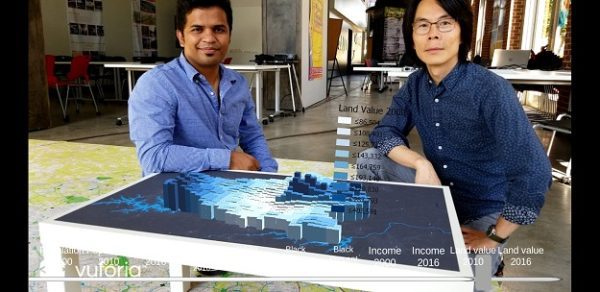Urban Design Professor Named Niantic/Knight Fellow

Ming-Chun Lee, a professor in the School of Architecture’s Master of Urban Design program, has been named one of five inaugural fellows in the Niantic/Knight Fellows Program, a community engagement initiative by the John S. and James L. Knight Foundation and Niantic, Inc., maker of the popular Pokémon GO game. The fellowship will support projects that address community issues and promote resident engagement using Niantic’s augmented reality technology. The Niantic/Knight Fellows are from Charlotte; Philadelphia; Macon, GA; Akron, OH; and Palm Beach, FL.
As an initial activity, Lee will incorporate Pokémon GO technology in the city’s September 30 Open Streets 704 event, getting people to go outside, walk and bike through the streets, and build a sense of community.
The fellowship builds on Lee’s research in using augmented and virtual reality technology to help people think about urban design and its impact on their lives. Last spring, he and fellow urban design professor Nadia Anderson created “Mapping (In) Equity in the Built Environment,” an interactive installation at the Projective Eye Gallery at UNC Charlotte Center City. The installation consisted of huge floor maps of Charlotte’s Cherry neighborhood, a historically African American neighborhood that has seen dramatic changes in the past decade. With augmented reality, delivered via an app devised by Ankit Kelkar, a graduate student in the College of Computing and Informatics, gallery visitors could view the maps through an iPad and see demographic changes to the area over time – increases in property values, for example, or the racial and economic make-up of the inhabitants.
A visitor from the city office of Planning, Design & Development saw the installation in March and asked Lee and Anderson to bring it to the Charlotte Powerhouse Trolley Studio in SouthEnd, where it is on view through the end of the year. An event on September 7 invites the community to interact with the installation and learn more about the 2040 Comprehensive Plan.